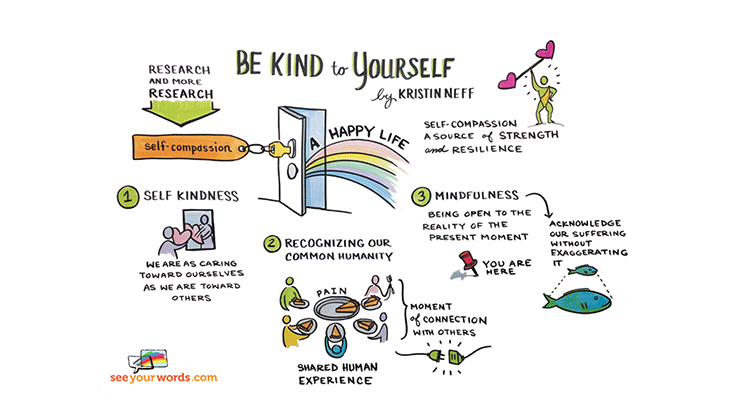Neff, who has researched self-compassion for the last ten years, says it has three components: self-kindness, common humanity, and mindfulness. In her Lion’s Roar article, Neff writes that “these components mutually interact to create a self-compassionate frame of mind. From this point of view, self-compassion is relevant to all experiences of suffering, whether cause by personal inadequacies and failures or by life situations outside of our control.”
Neff also writes, “Self-compassion means being more willing to experience difficult feelings and to acknowledge them as valid and important. The beauty of self-compassion is that instead of trying to get rid of ‘Bad’ feelings and replacing them with ‘good’ ones, positive emotions are generated by embracing our suffering with tenderness and care, so that light and dark are experienced simultaneously.
Enjoyed this @LionsRoar article by Kristin Neff so much I did a #graphicrecording of it. #selfcompassion pic.twitter.com/CsIg8LIlar
— Jo (Johnine) Byrne (@SeeYourWords) October 14, 2015

